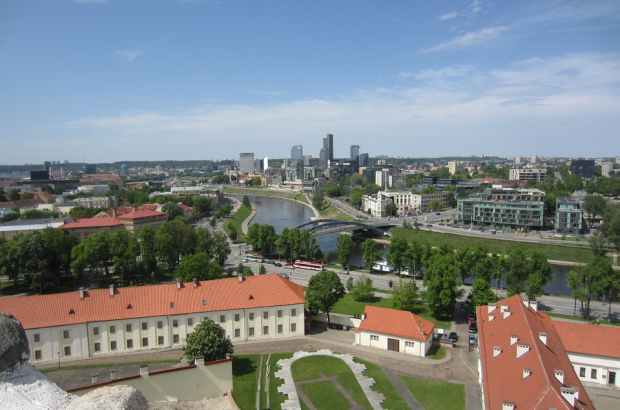- Daily & Weekly newsletters
- Buy & download The Bulletin
- Comment on our articles
Europe in Brussels part 10: The Lithuanian community
Lithuania has a long-standing relationship with Belgium. There are approximately 3,000 Lithuanians living here today. The country's ambassador to Belgium and Luxembourg, Gediminas Varvuolis, explains the waves of emigration from Lithuania.
"At the beginning of the 20th century, Lithuania was under Tsarist Russia," he says. "There were already some economic migrants coming to Western Europe. During the Lithuanian independence period between the two world wars, Lithuanian students were studying in various Belgian universities. After the second world war, there was another exodus when people were fleeing the Soviet occupation. Some of them came to Belgium and worked around Liège in the coal mines.”
Lithuanians are very proud of their history and celebrating their independence is of great importance to them. "The 16 February is our main national day because, in 1918, our statehood was restored," says Varvuolis. "If you look at the declaration of independence, the word that is being used is not ‘proclamation’ but ‘restoration’.”
Back in the 14th century until the end of the 18th century stood the Grand Duchy of Lithuania, later united with Poland to form a joint commonwealth. It stood as one of the biggest states in Europe. However, it progressively disappeared when it was occupied by neighbouring empires.
For the 16 February, the celebrations are quite traditional. The Lithuanian Embassy, Representation to the EU and Representation to Nato organise a diplomatic reception.
"We tend to orientate the celebrations towards our diaspora," says Varvuolis. "We traditionally invite them to the Embassy and we organise a cultural performance. Then we have a very informal Lithuanian get-together and national party. We hear some testimonials.”
Importance of sports
There are several Lithuanian cultural events taking place across the year, including a cinema club as well as a yearly 12-year-old tradition: “We organise the sports games of Lithuanians living in Benelux countries. Traditionally, we take a sports centre for the whole weekend. During two days, we play all sorts of sports from basketball, to individual sports, like running and swimming. It can get quite competitive.”
Basketball is often the sport of choice. “Every Lithuanian takes pride in it. We have basketball teams in Belgium playing in the sports games. The sport is part of our national character.”
Lithuania has firm roots in Europe, being one of the oldest languages. “The Lithuanian language is considered by linguists to be one of the languages which is closest to Sanskrit, one of the Indian languages,” Varvuolis says. “Sometimes there are curious coincidences in the words. The linguist historians say Lithuanian is the closest to the initial Indo-European language people used to speak.”
Culture
Recently, a Lithuanian cultural centre opened in Woluwé-Saint-Lambert (Chaussée de Roodebeek 302). It offers classes for children and adults wishing to learn the language.
Lithuanian expat Rasa Raudaite says: "It is a place for seminars and lectures. This centre is propagating the language. This is important for me and for other mixed families. My family is mixed: I’m married to a French citizen and we have kids speaking both languages. Thanks to this centre, my kids can attend Lithuanian language courses."
Raudaite is from a small village in the middle of Lithuania called Sidabravas and she has been in Belgium for eight years. Currently working for the European Commission, she often participates in the organisation of Lithuanian events.
Compared to the abundance of forests and lakes back home, she enjoys the architecture of Belgium and walking down old, historical streets. She does say Brussels is confusing to navigate around, even with a GPS or a map. “It’s not annoying if you’re not stressed by time,” she says.
“I like little places in Brussels. For example, I discovered the Laurent Gerbaud chocolaterie - very good chocolate, very nice and friendly staff working there.” She also likes the city of Mons.
“As a Lithuanian, I don’t feel homesick because I really like the international spirit, not only in Brussels, but in Belgium," Raudaite concludes.









